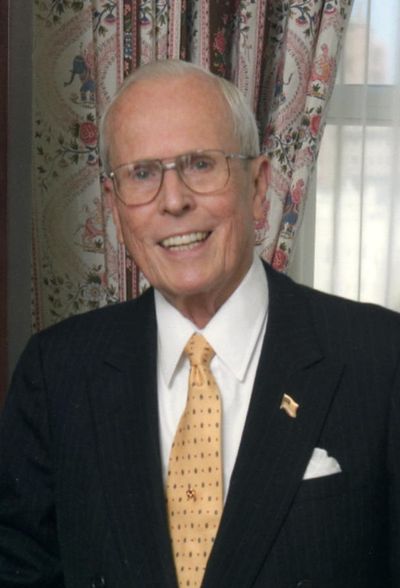National Review’s Rusher dies at 87
Publisher was early conservative voice

William A. Rusher, a leading theorist and organizer of the modern conservative movement who helped William F. Buckley Jr. build the National Review into one of the American right’s most influential journals, died Saturday at a retirement home in San Francisco. He was 87.
Rusher, who was also a syndicated columnist and author, died of causes related to old age, said Brian T. Kennedy, president of the Claremont Institute, a conservative think tank where Rusher had been a research fellow since 1989.
A Wall Street lawyer who investigated communist threats for a U.S. Senate subcommittee in the McCarthy era, Rusher was regarded as a godfather of the right. “He was there at the creation of the conservative movement,” Kennedy said. “He was a voice of steady … principled conservatism.”
Rusher assumed the role of National Review publisher in 1957, two years after Buckley launched it. Over the next three decades he brought discipline to its operations and helped turn it into a seminal voice of the right with a circulation of 100,000, several times greater than it was when he began.
Rusher lacked Buckley’s flamboyance and star power but emerged as an intellectual force in his own right. His column, “The Conservative Advocate,” debuted in National Review in the early 1970s and became a must-read for like-minded politicos, outlining positions on such contentious issues as apartheid and economic policy.
He was a staunch critic of the media, which he assailed for liberal bias in a 1988 book, “The Coming Battle for the Media.”
An activist as well as ideologue, he demonstrated his organizing skills as a leader of the movement to draft Arizona Sen. Barry Goldwater to be the Republican presidential candidate in 1964.
Goldwater’s candidacy failed, as did Rusher’s later drive to unite disparate wings of the movement behind a new third party. But he rejoiced in the 1980 election of President Ronald Reagan, whose victory cemented conservatives’ place in the American political mainstream.